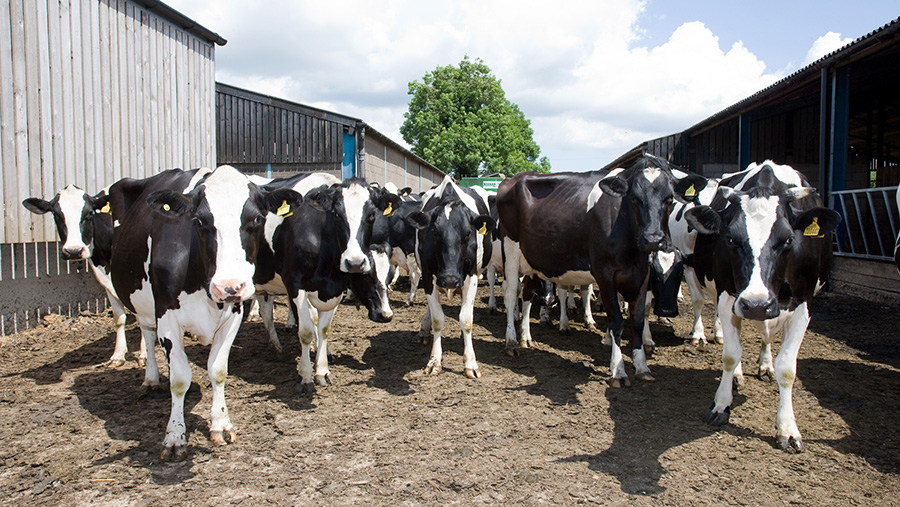Milk contracts: what farmers need to check
 © Tim Scrivener
© Tim Scrivener As the dairy industry edges tentatively towards a recovery, producers are being encouraged to scrutinise milk contracts to ensure they’re getting the best deal.
With many producers attracting several offers from processors, Farmers Weekly asked William Waterfield, from the Farm Consultancy Group, what to consider when looking at a contract.
See also: Dairy farmers urged to scrutinise milk contracts
Look past the headline
It can be tempting to focus solely on the price you’re paid for your milk, but there are other important details that are worth considering.
Many producers admit to not reading their milk contracts at all, so we recommend giving it a thorough check to avoid any surprises down the line.
Standard isn’t always the standard
There’s a distortion between different processors’ definitions of what constitutes a standard litre.
For example, the fat and protein constituents differ greatly between Glanbia at 4.20% and 3.4%, Wyke at 3.4% and 3.3% and Arla at 4% and 3.3% respectively.
This difference between those means the standard litres can differ by up 0.75p/litre.
Hygiene and incentives
It may seem obvious, but producers not knowing their somatic cell count and bactoscan requirements cost UK dairy farmers £40m in hygiene deductions in the past milk year – the equivalent of 0.3p on every litre produced.
Hygiene requirements have increased in recent years and are expected to get stricter as buyers and retailers look to increase farm efficiency and performance.
Exclusivity clauses
Many processors will include an exclusivity clause, where producers are only allowed to sell their milk to that processor.
Problems can arise when processors can’t handle all of your milk but you are contractually prevented from selling it elsewhere. Some clauses prevent you from selling excess litres at the farmgate – or even drinking it yourself.
12-month notice periods
Providing 12 months’ notice to leave a processor is a lottery for producers. Nobody can anticipate the state of the market in a year’s time so it’s crucial to look out for these clauses. Always consult an expert if you’re worried.
Also, look out for specific exit dates, where processors may only let you leave their supply pool on one set day of the year.
Most contracts compliant with the voluntary milk code of practice have three-month notice periods.
Buyer behaviour
If you’ve received an offer from a new processor, always check their track record in the previous three to four years.
Examine how the business has treated its farmers. How and when have they increased or reduced their prices?
If they’re not a well-known buyer, consider checking out their long-term financial stability, by doing some background research.
